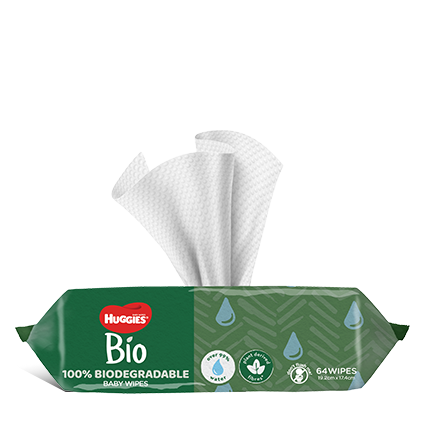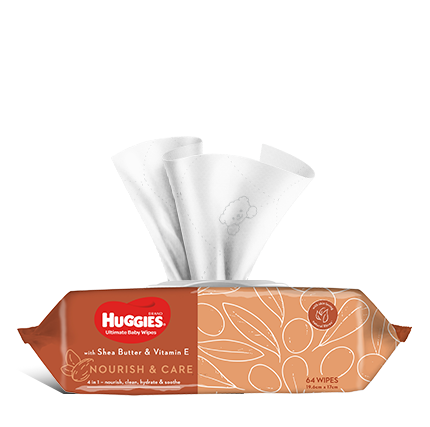You may be eagerly waiting for your baby’s first tooth to come through, given it’s one of your baby’s first exciting developmental milestones in their first year of life.
You may also recall being told during your pregnancy that your baby’s teeth begin developing while they are still in the womb. They are already within the jawbones when babies are born.
When the teeth come through the gums, this is the process of teething, which can happen at any time, ranging from 3 to 12 months. This can vary, because as with all developmental milestones, all children are individual. According to the Australian Dental Association, it is totally normal for baby teeth to arrive in any order, although the central bottom teeth are often first.
However, you may still be wondering when and if you should be worried about teeth not coming through for your baby.
Here, we will discuss what you can expect when babies are teething, how to maintain the health of your baby’s teeth even before they come through and what you can do if your baby doesn’t have any teeth showing by the suggested guidelines.
How to tell if baby is teething?
Apart from checking your child’s gums for a hint of tooth coming through, the following are some symptoms which may indicate your baby is teething:
-
Red swollen gums
-
Wanting to suck or chew on objects more
-
Acting a bit more fussy
-
Increased drooling, and swallowing this which can lead to waterier poos
Teething typically takes about 8 days, explains Raising Children’s Network, which includes 4 days before and 3 days after the tooth comes through the gum. There may be a blue-grey bubble on the gum, an eruption cyst where the tooth is about to appear and which should go away on its own without treatment.
Babies start to teeth around the age of 6 months, the same age their immune systems start to change and when they start putting more things in their mouth, so they are more prone to illness and infection. If your baby is exhibiting other symptoms, such as fever higher than 38 degrees celsius, diarrhoea, rash on the body, or crying a lot more than normal, then it may not be related to teething and it would be best to take your child to the doctor for a check up.
Reasons for delay in teeth coming through
In an otherwise healthy child, delayed eruption is usually not a major concern, and according to an article in the Western Journal of Medicine, this can be due to local factors, such as a tooth in the path of eruption, insufficient space in the dental arch, or dental infection. It may be found that other family members also had teeth arriving later than expected.
Mount Sinai Hospital explains that specific diseases can impact on when teeth grow in or their absence. Delayed or absent tooth formation can result from many different conditions, including genetic disorders such as Down syndrome, Apert syndrome, Ectodermal dysplasia and other conditions such as hypothyroidism.
According to a 2019 review in the Journal of Dental Health Oral Disorders and Therapy, other factors found to affect eruption include preterm babies, low birth weight and malnutrition. The review also concluded that delayed tooth eruption might be indicative of a specific medical condition. This is why it would be important to arrange a check up with the dentist if there is a delay in tooth eruption.
When to get help for baby with no teeth coming through?
Delayed tooth eruption may lead to dental problems that need to be fixed later in life, such as more orthodontist care required or tooth decay.
If your child does not have any teeth present in their mouth by 12 months of age, it is ideal to organise a check-up with a dentist to investigate to ensure there are no underlying issues. Significantly delayed tooth eruption can also make it difficult for children to eat nutritious foods that require biting and chewing. Baby teeth can also aid in proper speech development, and guide and maintain the space and correct position for permanent teeth.
The dentist will physically examine the teeth, mouth and gums and may ask questions such as whether any other family members have had delay in teeth eruption.
Dental x-rays may be taken to examine the cause of the delayed tooth eruption.
Maintain oral hygiene from birth
Good oral care should start even before teeth start to appear. You can do this by helping to brush your baby’s teeth to ensure a thorough clean of all tooth surfaces, by gently rubbing a clean, damp washcloth over your baby's gums.
To reduce the risk of tooth decay, even for tooth that are yet to come through, Pregnancy Birth Baby advises the best drinks for your baby besides breastmilk are milk and water. Reduce sugar content of food and drinks, to prevent the production of bacteria that feeds on these foods, producing acid that can travel down the gums into the unerupted teeth.
Babies under 12 months old should only have breastmilk or infant formula. Do not bottle feed with cordial or juice or put honey on their dummy. Only bottle feed with water before bed.
REFERENCES
https://www.mountsinai.org/health-library/symptoms/tooth-formation-delayed-or-absent
https://www.cupertino.dental/delayed-tooth-eruption-what-you-should-know/
Written by Tracey Cheung, April 2023. Tracey is a freelance writer who specialises in creating health and wellness content for the community, drawing on her experience as a mother.
Reviewed by Jane Barry, Midwife and Child Health Nurse, February 2024.


Last Published* June, 2024
*Please note that the published date may not be the same as the date that the content was created and that information above may have changed since.

















